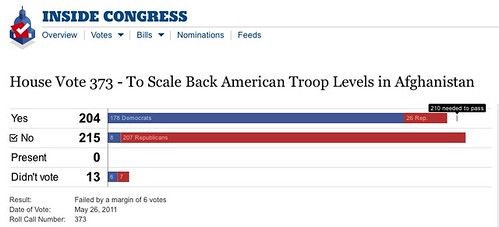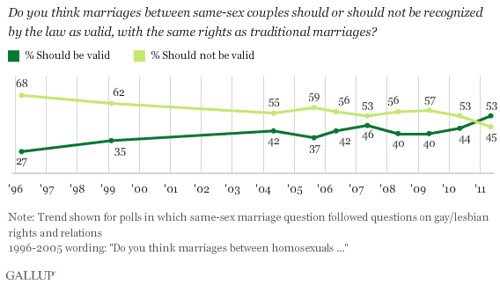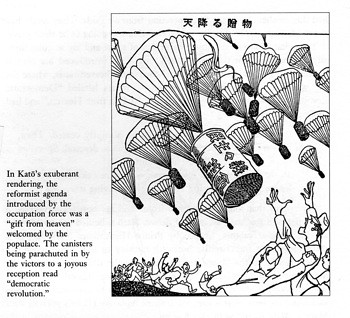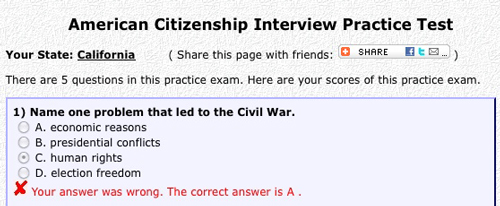 A recent article in the National Journal highlighted how early voting is changing political campaigns. The story's focus was on the fact that currently the Republican National Committee perceives itself as outclassed by Democrats in the necessary work of pushing its voters to the polls. Here's that article's nut graf:
A recent article in the National Journal highlighted how early voting is changing political campaigns. The story's focus was on the fact that currently the Republican National Committee perceives itself as outclassed by Democrats in the necessary work of pushing its voters to the polls. Here's that article's nut graf:This development has both national and local ramifications that seem worth unpacking. Here are a few thoughts about the implications for the 2012 national campaign:... the GOP also faces a problem only rarely acknowledged among top party strategists: The Republican Party’s turnout operations, which can suck up millions in funds during the critical last days of a campaign, are much weaker than those of their Democratic counterparts. And without a serious investment soon, the turnout gap threatens to undermine Republican efforts to win key contests in the 2012 election cycle.
Thanks to rules that allow voters to cast ballots early, or by absentee, the new reality is that turning out voters is a monthlong process. Republicans once wielded a vaunted 72-hour program, which identified voters most likely to cast ballots for Republicans and whipped them into heading to the polls. Now, the parties must begin turning out voters weeks in advance of Election Day. At the moment, Democrats are much better equipped to get their voters to the polls over that stretch than are Republicans.
- The advantage in this arena can shift fast! There should be no Democratic complacency. Working the 2004 election in New Mexico, I saw Republicans execute their highly targeted 72-hour program apparently smoothly, while a multitude of Democratic groups were making a hash of our efforts. Since the state margin was less than 6000 votes, turnout operations may well have made the difference. In 2008, working turnout for Obama in Colorado, we'd pretty much run out of targeted voters to hunt up by election day -- advantage Democrats in that round.
- Effective turnout operations depend on accurate, up-to-date voter databases. The cost of data and data management has come way down over the last decade -- but effective planning and the organizing of volunteer turnout workers isn't getting any cheaper. Recruiting, training and overseeing turnout workers for a month long project is expensive. And it is not flashy stuff; the messaging component of the campaign will always think another TV ad is more worthwhile and fight spending on turnout. The Obama campaign invested in turnout apparatus; it had the money to burn. This is what the GOP is trying to catch up with.
- Because the GOP is currently behind in creating an effective month long turnout operation, the party has that much more incentive to legislate obstacles to early voting and easy voting, as they have in Florida and Wisconsin.
- Yet, though in the very short term less accessible elections may serve Republican interests, in the longer term dilution of Election Day is almost certainly more harmful to Democrats than Republicans. First time voters, new citizens, poor people and young people need to be mobilized to turn out. Election Day as a universally observed civic event is more important to getting them moving than it is to older, more experienced voters, who are nowadays usually Republicans. David Plouffe discussed how this came as a surprise to the Obama people in his campaign book.
- If most (or all) ballots come to voters in the mail and need to be returned by mail, it is possible that campaign mail, arriving in the same medium, has higher effectiveness. Or not. I know of no research.
- Keeping track of who has voted and should no longer be among the voters slated for campaign contact becomes vital. Although this has become cheaper and easier than in the past, managing the data will still test the human resources of small campaigns. But the task must be done, otherwise limited resources will go into useless activity aimed at people who can no longer participate.
- Small campaigns that aim to substitute volunteer people power for cash are going to have to be more sophisticated with their limited resources. It used to be a rule of thumb that activity before September 1 amounted to base collecting, mobilizing the folks who were easy to bring on board and training them in the specific tasks of the campaign. Intensive voter identification would follow through September and October; this stretch gave organizers a chance to mold their volunteer base into a disciplined team. The stars would show themselves and be given enhanced responsibilities; the deadwood would drop away. Then, over the last week, the campaign would replicate all the activity of the previous eight weeks in a final burst of intensive efforts to get out the vote. These timelines no longer work and I don't think organizers of small, under-resourced campaigns yet know how to establish the new rhythms that suit the new calendar.






































